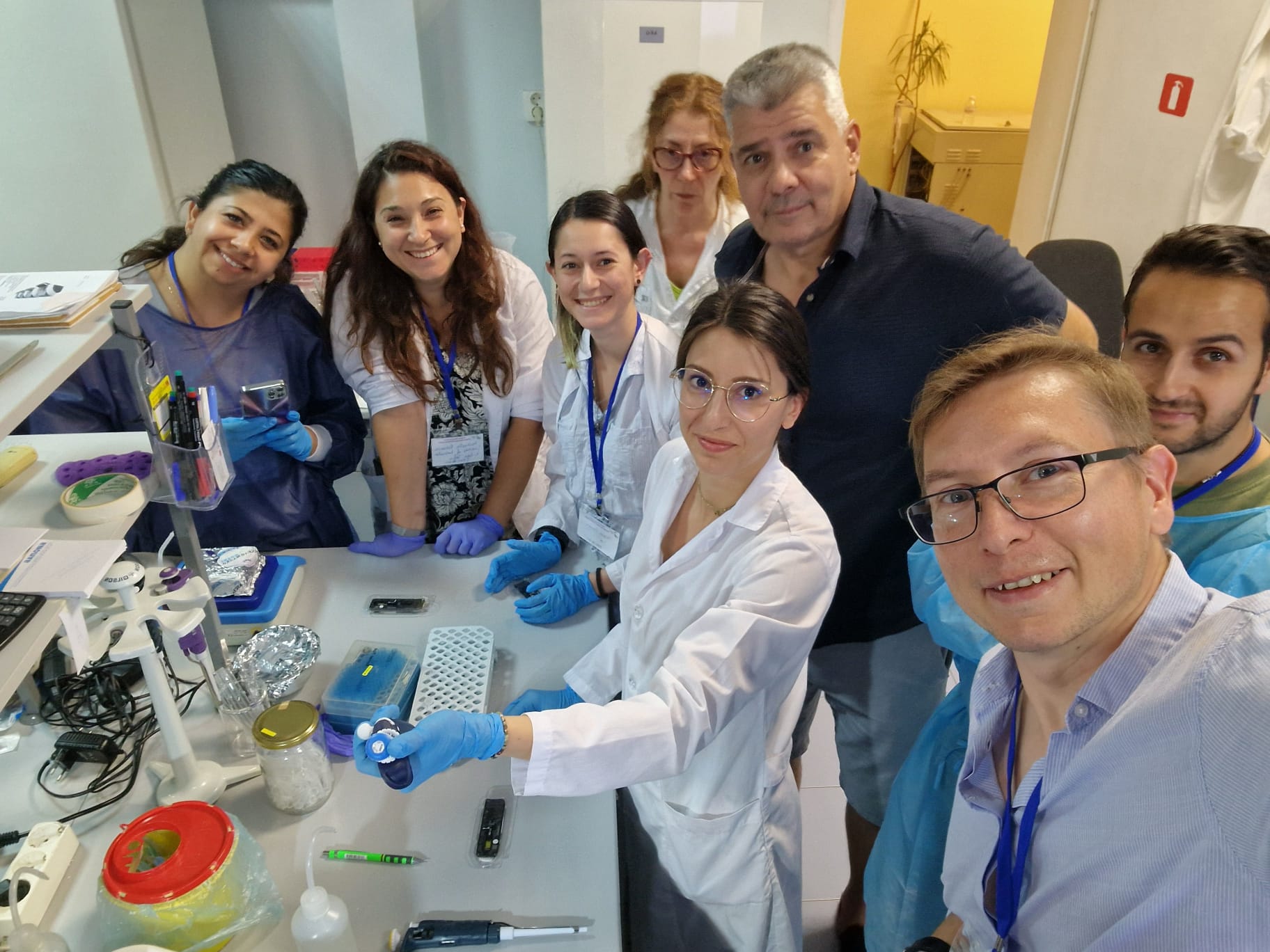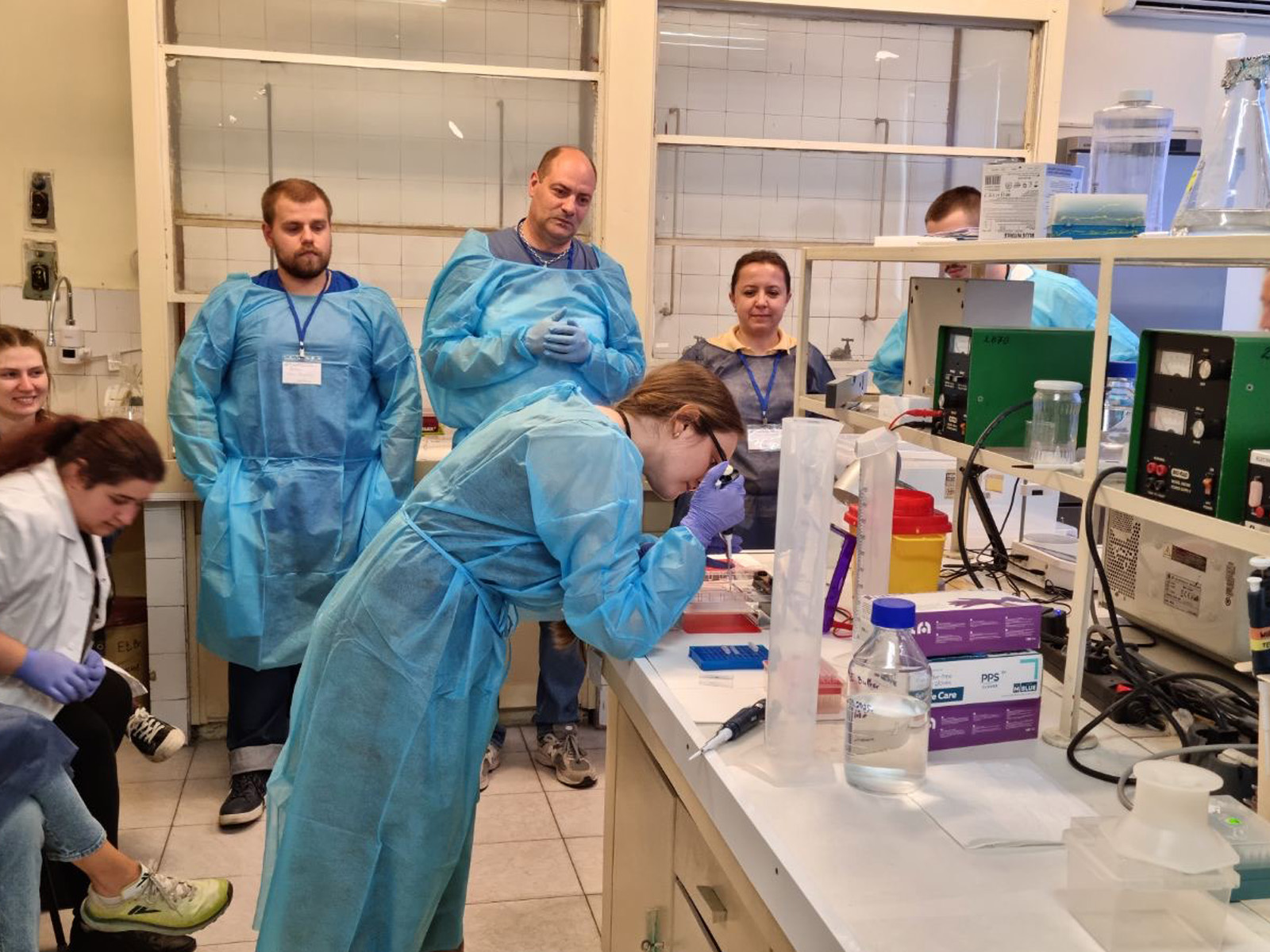Sofia Training Event
From 7 to 9 July 2025, the Bulgarian Academy of Sciences (BAS) in Sofia hosted a regional BGE training event on biodiversity genomics. The workshop was organised by Aristotle University of Thessaloniki (AUTH) with contributions from BAS, and the University of Łódź (UniLodz). The event also aimed to build synergies between national barcoding nodes—GrBOL (Greece), BgBOL (Bulgaria), and PolBOL (Poland)—and strengthen regional capacity in biodiversity genomics.
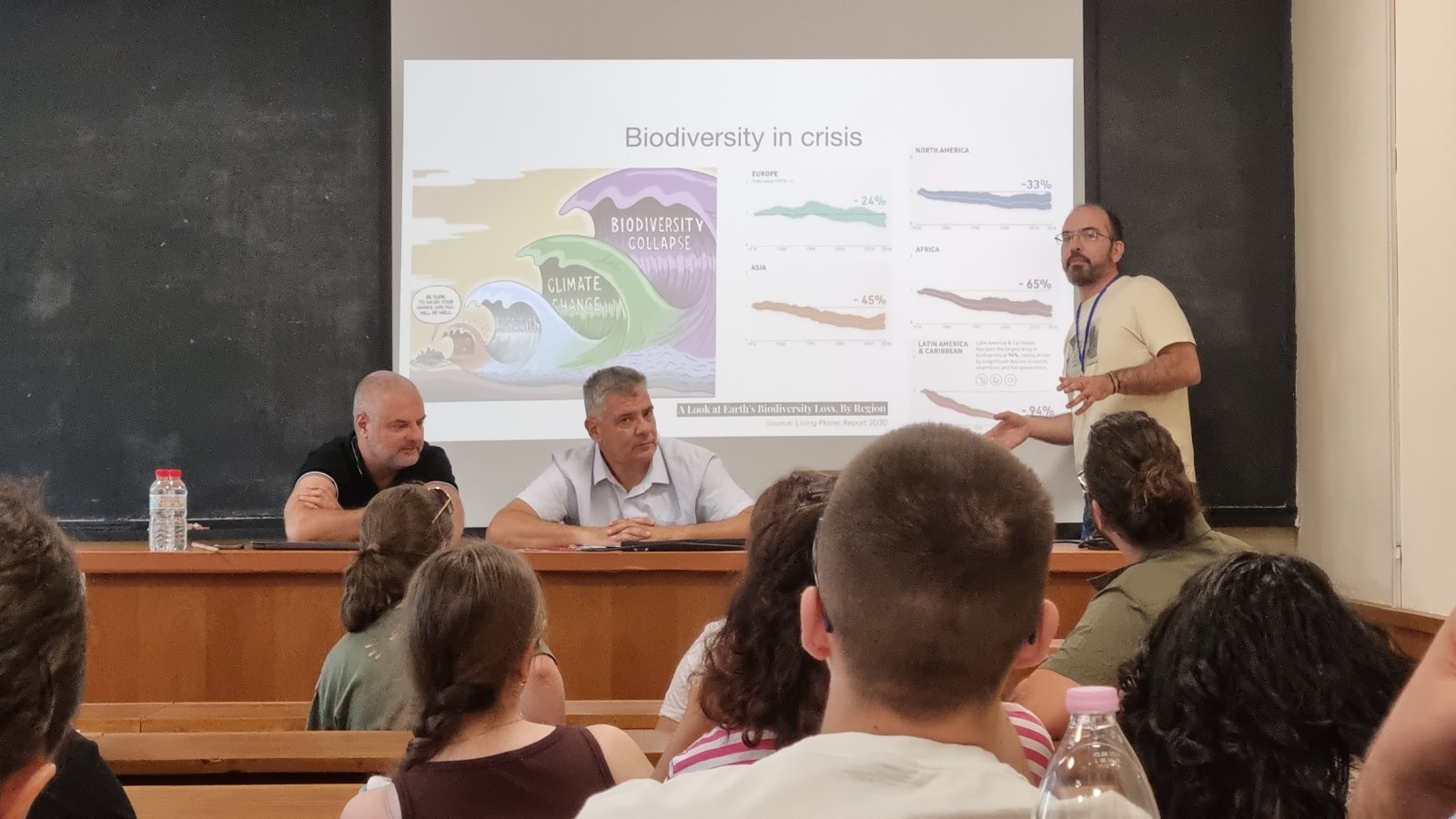
The three-day programme combined theoretical sessions with practical training in DNA barcoding and genome-scale workflows. Day 1 focused on molecular techniques, including DNA extraction and high-molecular-weight (HMW) DNA handling. Day 2 covered barcode library preparation and sequencing using Oxford Nanopore Technologies (ONT) MinION devices. Day 3 included data analysis and submission to BOLD, as well as sessions on citizen science and community outreach. The programme concluded with a roundtable discussion on the roles and future collaboration of national barcoding initiatives in the region.
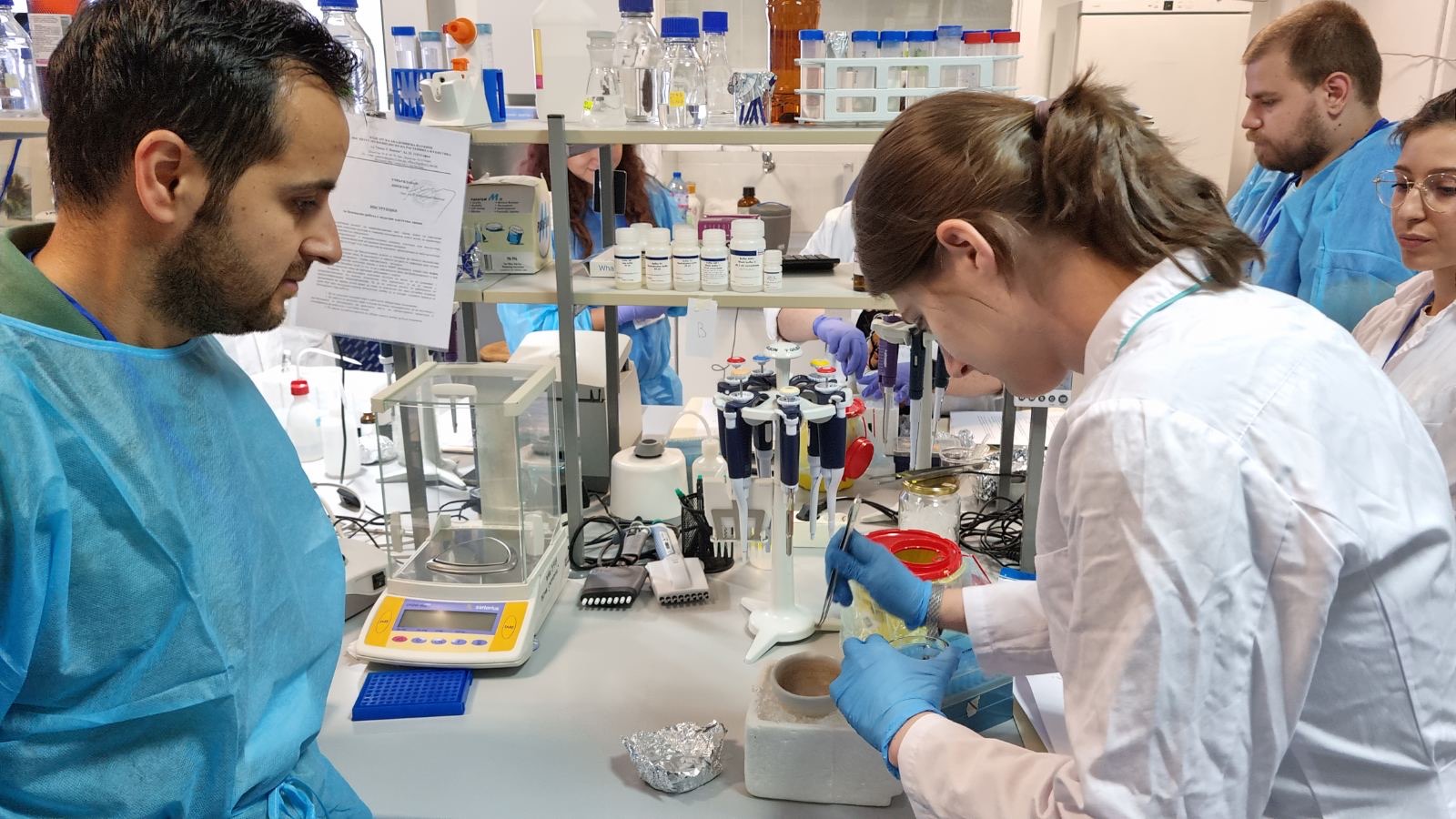
A total of 15 participants were selected via an online registration process. They represented a range of academic institutions, including Sofia University, several BAS institutes (e.g., Molecular Biology, Biodiversity and Ecosystem Research, Plant Physiology and Genetics), the National History Museum of Bulgaria, the Maritsa Vegetable Crops Research Institute, and the University of Skopje (North Macedonia). Participants included bachelor and master’s students, PhD candidates, postdoctoral researchers, and early-career scientists from fields such as molecular biology, microbial ecology, conservation, and bioacoustics.
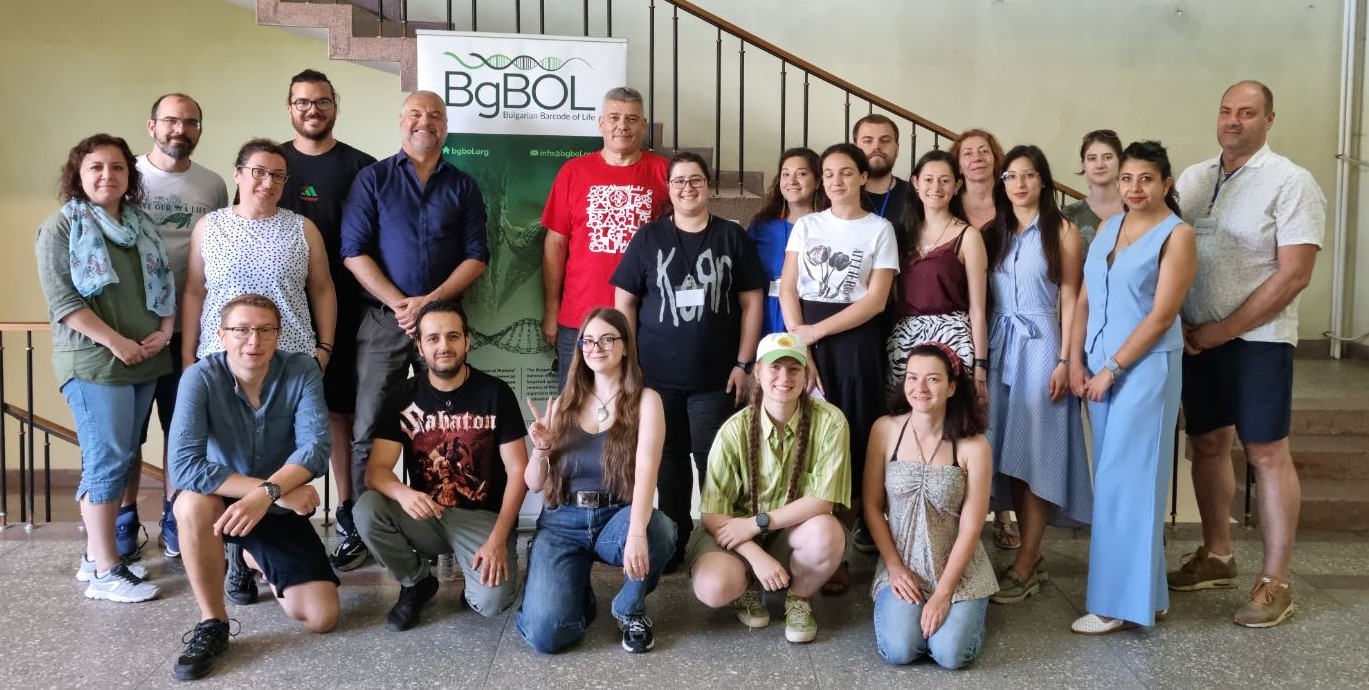
Participants were grouped into three working teams to balance experience in laboratory and bioinformatics workflows. Training sessions were led by four instructors from AUTH (A. Triantafyllidis, S. Papakostas, E. Kaitetzidou, K. Gkagkavouzis) and one from UniLodz/PolBOL (T. Mamos), with support from the BgBOL coordination team. The training made use of BAS facilities and included newly acquired ONT reagents for practical sessions.
